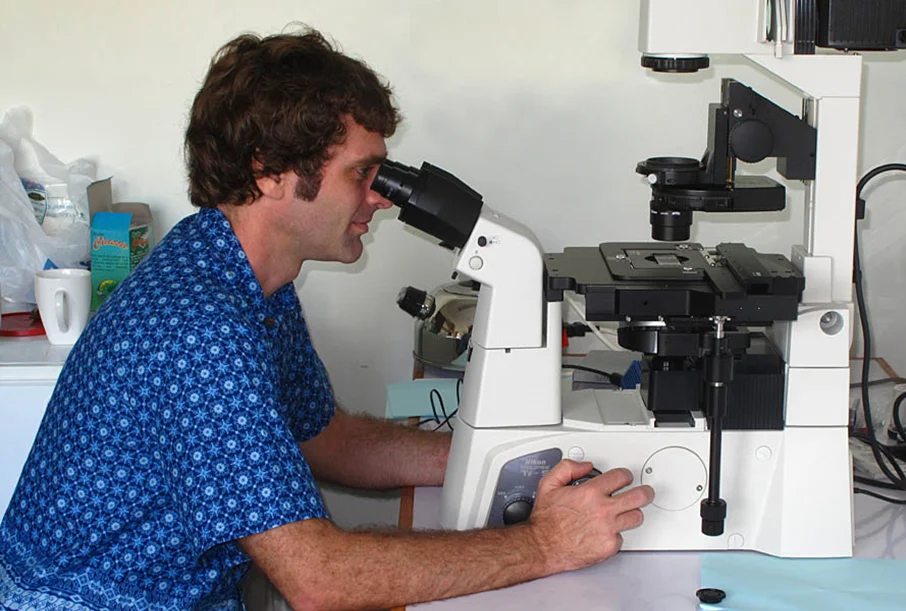Dr. Karl Seydel using a microscope.
Dedicated to Research
Studies carried out over the last 28 years have led to major shifts in the world’s understanding of cerebral malaria. Projects conducted on the Pediatric Research Ward have determined that upon close inspection, many children who appear do have cerebral malaria may have other infections contributing to their illness. We are working to identify and find better way to treat these illnesses
Seizures are very common in children with cerebral malaria and increase the chances that children surviving the illness will develop epilepsy within a year or two of being discharged. Dr. Gretchen Birbeck, a neurologist from the University of Rochester, and other clinicians from the Project are currently performing a clinical trial of a safe anti-seizure medication in these children to see if the number of children with post-illness epilepsy can be decreased
General Electric Healthcare donated a magnetic resonance imaging (MRI) machine, worth $1.1 million, to the Project in 2008. Images from this machine have helped us understand that brain swelling is the way the malaria parasite actually kills its victims. Dr. Taylor and others are currently working to understand what can be done in terms of treatment to save more lives
The researchers at the Blantyre Malaria Project have made tremendous advances in the understanding of the causes of illness in patients with cerebral malaria. Physician-scientists from around the world have conducted research projects in the Pediatric Research Ward, using the patient care infrastructure maintained by Dr. Terrie Taylor and the Blantyre Malaria Project. These universities include:
- Michigan State University, USA
- University of Maryland, USA
- University of Liverpool, UK
- University of Rochester, USA
- Albert Einstein University, NYC, USA
- Cornell University, Ithaca NY, USA
- University of Melbourne, Australia
- University of Oxford, UK
- Harvard School of Public Health, Boston MA, USA
- University of British Columbia, Vancouver BC, Canada
- Brigham and Womens’ Hospital, Bethesda MD, USA
- University of Minnesota, Minneapolis MN
- University of Washington, Seattle WA




